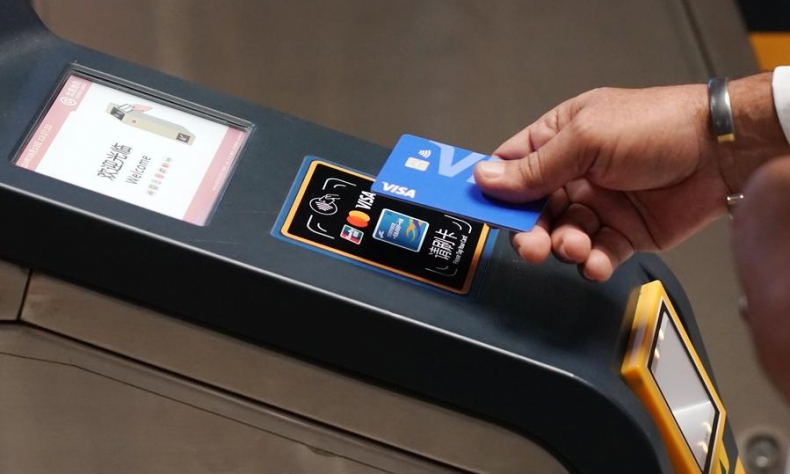Swiping Through Borders

While allowing overseas-issued credit cards like MasterCard and Visa to be used for payment may not seem revolutionary at first glance, it signals a broader shift in Beijing’s—and, by extension, China’s—openness to the world.
China’s aspiration to become a global financial powerhouse is a big part of a broader strategy to elevate its influence on the world stage, diversify its economic growth and reduce dependence on foreign financial systems. As the world’s second largest economy, China has already made strides in economic and technological advancements, but building a world-class financial sector remains one of the country’s most important objectives.
Beijing has long been a city of contrasts; it’s a vast place where ancient history and cutting-edge modernity coexist. The latest technological upgrade to the city’s subway system, allowing overseas-issued credit cards like MasterCard and Visa to be used for payment, is not just about convenience. It marks a new, considerable measure in the capital city’s larger agenda to position itself as a truly international city, embracing visitors from all over the world and enhancing its role as a global exchange center.
This seemingly simple update, rolled out on September 13 during the 2024 China International Fair for Trade in Services (CIFTIS), which unfolded in the Chinese capital on September 12-16, has far-reaching implications that stretch well beyond the realm of finance.
For the first time, foreign travelers can now use their own credit cards to pay for subway fares, bypassing the previously cumbersome need to purchase tickets through vending machines that requires cash or local bank cards. More than 20,000 facilities across 490 stations on all of the city’s 27 subway lines—including two airport expresses as well as the Xijiao and Yizhuang T1 lines—were upgraded to enable this functionality. With just a contactless swipe of the overseas-issued card at any of the fare gates, foreign travelers can get on the subway.
While this change may not seem revolutionary at first glance, it signals a broader shift in Beijing’s—and, by extension, China’s—openness to the world.

In recent years, China has continuously modernized its infrastructure, but certain barriers for international visitors persisted. Making payments has been a sticking point, with travelers from overseas often finding themselves at a disadvantage in a society where mobile payments and local super apps like tech hulk Tencent’s Weixin (internationally known as WeChat) Pay and e-commerce behemoth Alibaba’s Alipay dominate daily transactions.
For tourists unfamiliar with these platforms, the simple task of purchasing a subway ticket could soon turn into a frustrating ordeal.
By enabling international credit card use, Beijing has removed one of the most visible and vexing barriers for travelers. No longer will they have to deal with confusing payment machines or scramble to obtain local cash—given not all ATMs in Beijing are equipped to handle international cards, and even those that do might not work consistently due to compatibility issues with certain card networks.
This upgrade required much technological innovation and coordination. Upgrading tens of thousands of facilities and integrating international payment systems across a sprawling network of subway stations is no small feat. The successful endeavor illustrates Beijing’s capacity to incorporate global systems into its infrastructure.
Moreover, it raises expectations for cities like Shanghai Municipality and Guangzhou in the southern province of Guangdong—economic powerhouses with similarly strong global ambitions—to follow suit.
It is a small but significant measure that enhances the capital’s global connectivity and positions it as a welcoming gateway to China. For international travelers, it indicates a more convenient and accessible experience; for Beijing, it marks yet another step in its ongoing journey toward becoming a leading international hub.
The author is a finance professional at the Industrial and Commercial Bank of China and a researcher with the Beijing-based think tank Center for China and Globalization.
 Facebook
Facebook
 Twitter
Twitter
 Linkedin
Linkedin
 Google +
Google +










